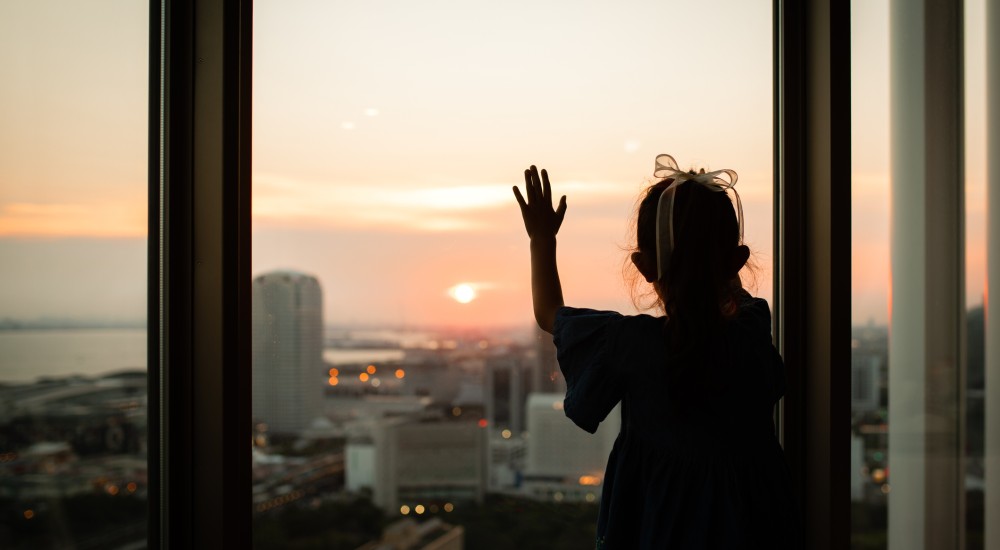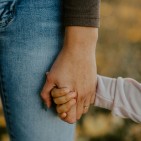
Keeping kids inside and away from others isn’t easy, but BC Children’s Hospital Dr. Ashley Miller has some thoughts on how families can navigate through these challenging times.
Miller's first piece of advice is to keep things real, but positive.
"You can't pretend everything is fine, because kids can sense it isn't," she says. "Tell kids things they can do to help. By washing their hands properly, staying home and helping out around the house, they are making a difference in the fight against COVID-19. Kids want to be helpful."
Disappointment is natural
Children can sometimes blame parents for the isolation, since it's ultimately the parents' call to keep their children inside or away from others in public places.
"The first step is not taking it personally," says Miller. "Recognize their disappointment and understand their point of view. Put that into words. You might say something like, 'I don't blame you for being mad because I said you can't go to your friend's house. It's not easy to be away from them for so long and you miss them.'
"When you validate their feelings first, you can give them realistic information after and it's absorbed better."
Recognize there's nothing wrong with feeling disappointed or angry or any other way they may feel right now.
Encourage kids to be helpers
"You can tell them they're being such a good friend by helping to keep their friends and their family healthy."
Miller says to encourage virtual play dates and online social connections. Physical distance is needed, but social connection is crucial for well being.
For kids who are scared to go out with overwhelming anxiety, Miller suggests parents teach kids not to let their worry take over.
"We don't want to provide repetitive reassurance," she says. "You can say, 'Seems like the worries are bossing you around right now,' then refocus to another activity."
Working from home
Many parents are choosing to work from home to keep from spreading the virus at workplaces, but with school closures, they'll have to contend with kids bursting into their home office.
"If possible, block off chunks of time for work or kids," says Miller. "Do one thing and not the other, if possible. Kids can bug or whine if their parents are there, but distracted by the computer. It's hard for them to understand the intermittent attention and they can feel a bit insecure."
If you do need to divert attention back and forth, it's good to be transparent and explain what's happening to kids, she says.
Keep a schedule
Miller recommends keeping a visual schedule with pictures for younger kids - with time to eat, exercise, get fresh air, etc. and co-create a schedule with older kids. Teens can be encouraged to create their own schedule with parent input.
"Preparing kids ahead of time helps. Then they think, 'Yes, I can do this.' A sense of competency or having a solid task to do helps to combat the feelings of uncertainty we all have," she says. "We may not be able to solve everything, but we can tackle our own areas with success; whether that's planting a flower, cleaning a drawer or drawing a picture for a grandparent."
Help kids feel secure
In these unsure times, she says it also doesn't hurt to give an extra five minutes of cuddles or 10 minutes of solid play time at the end of each day - for kids to feel grounded again with their parent.
If both parents must work while kids are home, there may be emergency shuffling between babysitters. Relatives or friends may have to step in more than usual to help co-parent. At all times, Miller recommends, the social distancing decisions of caregivers should be made away from the kids.
"Provide information for co-parents and other caregivers who may have a different opinion than you," says Miller. "When people feel pressured, the human instinct is to rebel. You might share articles or images that illustrate the information rather than repeatedly trying to convince or argue."
This advice can apply to teenage children too. When possible, she says, allow teens to make their own choices, like what activities they want to do the next day (within the recommendations of health officials).
"Teens also want to be altruistic and flatten the curve - so that everyone doesn't get sick all at once," says Miller.
When you need space
And when the family is all trying to operate in a confined space, tell each other when you need more room - and that it's out of love. If parents or caregivers find themselves getting angry or irritable, they can take a step back.
"The first thing is noticing you're losing your cool. Take a few deep breaths. If you feel like you're going to explode, you can say, 'I just need a couple seconds or minutes to feel better. I'll be back as soon as I can. This is just for me to calm down.'"
Ultimately, Miller says, go with the flow. No one knows the right answers all the time.
"Don't put too much pressure on yourself as a parent. Everyone is just adjusting to this. If you're stressed, you can say 'Yes, I am stressed out right now.'"
And don't worry about getting kids back on the school work routine while they're still supposed to be in Spring Break. Routine is helpful, and possibly some learning activities, but school work doesn't need to be top priority this week.
"We're doing our best and it's not easy. Let's just give ourselves a breather right now. Whatever fits for the parent, helps kids settle too. Children are always looking to parents for signs of safety, especially in uncertain times."
Miller says parents and caregivers can focus on staying connected with their own supports and, when possible, squeeze in some self-care moments.
* For more information on parenting during COVID-19, please visit this section on our website where you will find tips for talking to children, strategies for supporting your child’s mental health, and much more: keltymentalhealth.ca/info/parenting-during-covid-19







